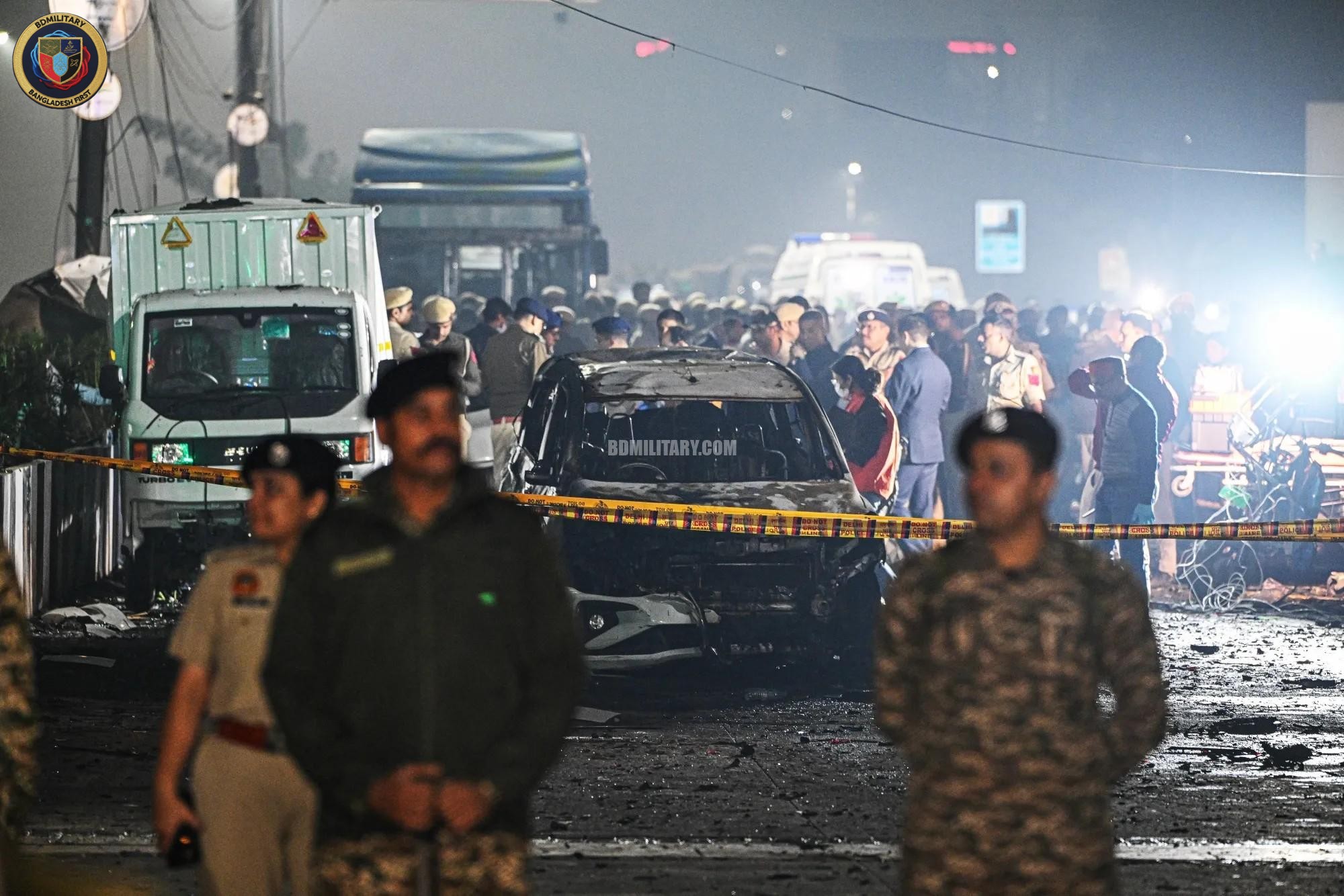The present Hindutva-driven government in New Delhi has increasingly adopted a posture of suspicion, hostility and confrontation towards its neighbours, while diverting national attention away from India’s deep internal crises. This fixation on external enemies may play well to domestic politics, but it does not alter the stark reality: far more Indians die from preventable causes such as air pollution and caste-based violence than from any war, cross-border attack or terrorist incident. India’s long-term stability and security cannot be built on diplomatic quarrels or accusations against foreign states; it must be built on addressing the failures within its own borders.
India today faces one of the world’s most severe public-health catastrophes, with air pollution responsible for well over a million deaths every year. Scientific assessments show that toxic air—driven by industrial emissions, vehicle exhaust, coal burning and biomass fuel—kills vastly more Indian citizens annually than all India-Pakistan conflicts, insurgencies and terror incidents combined. These are avoidable deaths, the direct result of policy inertia, weak enforcement and misplaced political priorities. When a country’s greatest threat to human life is the air its citizens breathe, it is a clear sign that internal governance must take precedence over geopolitical chest-thumping.
Alongside environmental degradation, India continues to grapple with entrenched caste-based violence and communal tensions. These are not isolated incidents but systemic problems rooted in discrimination, social inequality and lack of accountability. Attacks, forced displacement, honour-based assaults and communal clashes occur with concerning regularity, undermining public safety and eroding social cohesion. These domestic fractures, far more than any foreign state, pose a long-term threat to India’s unity and resilience.
Yet instead of devoting political capital and resources to tackling these crises, the Indian government has turned increasingly outward, escalating rhetoric and widening the circle of blame. Following the recent Delhi bomb blast, India has accused an extraordinary list of countries—Pakistan, Türkiye, Bangladesh, Nepal, Malaysia, the United Arab Emirates and Saudi Arabia—of having links to the incident. While investigations must take their course, such sweeping accusations against nearly every major regional partner raise serious questions about Delhi’s strategic judgement. Alienating neighbours and key Muslim-majority partners, many of whom host millions of Indian expatriate workers, weakens India diplomatically and economically while doing nothing to address the failures at home that breed insecurity.
India’s pattern of attributing internal instability to foreign interference reflects a political desire to externalise blame rather than confront uncomfortable domestic truths. A government secure in its governance would not need to manufacture adversaries abroad to mask shortcomings in public health, law enforcement, social justice or environmental policy. A truly confident regional power would focus first on strengthening its internal foundations—clean air, safe streets, functional institutions, inclusive growth—before asserting leadership beyond its borders.
The paradox for India is that improving internal conditions would itself enhance national power. Tackling air pollution alone would increase life expectancy, workforce productivity and healthcare efficiency. Reducing caste-based and communal violence would strengthen national unity and trust in state institutions. Prioritising development over confrontation would free resources for infrastructure, education and clean-energy transition. By contrast, antagonising neighbours and issuing broad diplomatic accusations only isolates India, increases regional tension and diverts funds away from the sectors where they are most urgently needed.
For India’s long-term security and prosperity, a strategic reorientation is essential. The country would be far better served focusing on its internal development—clean air, social justice, economic cohesion and governance reform—rather than creating enmity with neighbouring states or pursuing politically expedient narratives of foreign conspiracy. A strong India cannot be built on external hostility while domestic crises worsen. True power is measured not by how many countries a government can accuse, but by how effectively it can safeguard the lives, dignity and welfare of its own citizens.
In the end, India’s stability will be determined not in Islamabad, Dhaka, Ankara or Riyadh, but in New Delhi itself. Addressing internal failures is not merely a domestic priority; it is a strategic necessity. Only by confronting its internal challenges head-on can India secure the peaceful and prosperous future it claims to seek. For Bangladesh and the wider region, India’s return to pragmatic, development-centred policy would contribute far more to stability and cooperation than its current posture of suspicion, escalation and externalisation.

Ayesha Farid is a regional security specialist focusing on South Asia, with over a decade of experience analysing inter-state tensions, cross-border insurgency, and regional power dynamics. She has worked with leading policy think tanks and academic institutions, offering nuanced insights into the complex security challenges shaping the subcontinent. Ayesha’s expertise spans military doctrines, border disputes, and regional cooperation frameworks, making her a vital contributor to BDMilitary’s coverage of South Asian strategic affairs. She leads the Geopolitics & Diplomacy section at BDMilitary. Ayesha holds a dual master’s degree — a Master in International Relations from the IE School of Politics, Economics & Global Affairs, Spain, and a Master of Public Policy from the Munk School of Global Affairs, University of Toronto, Canada — combining deep academic insight with practical policy expertise.


